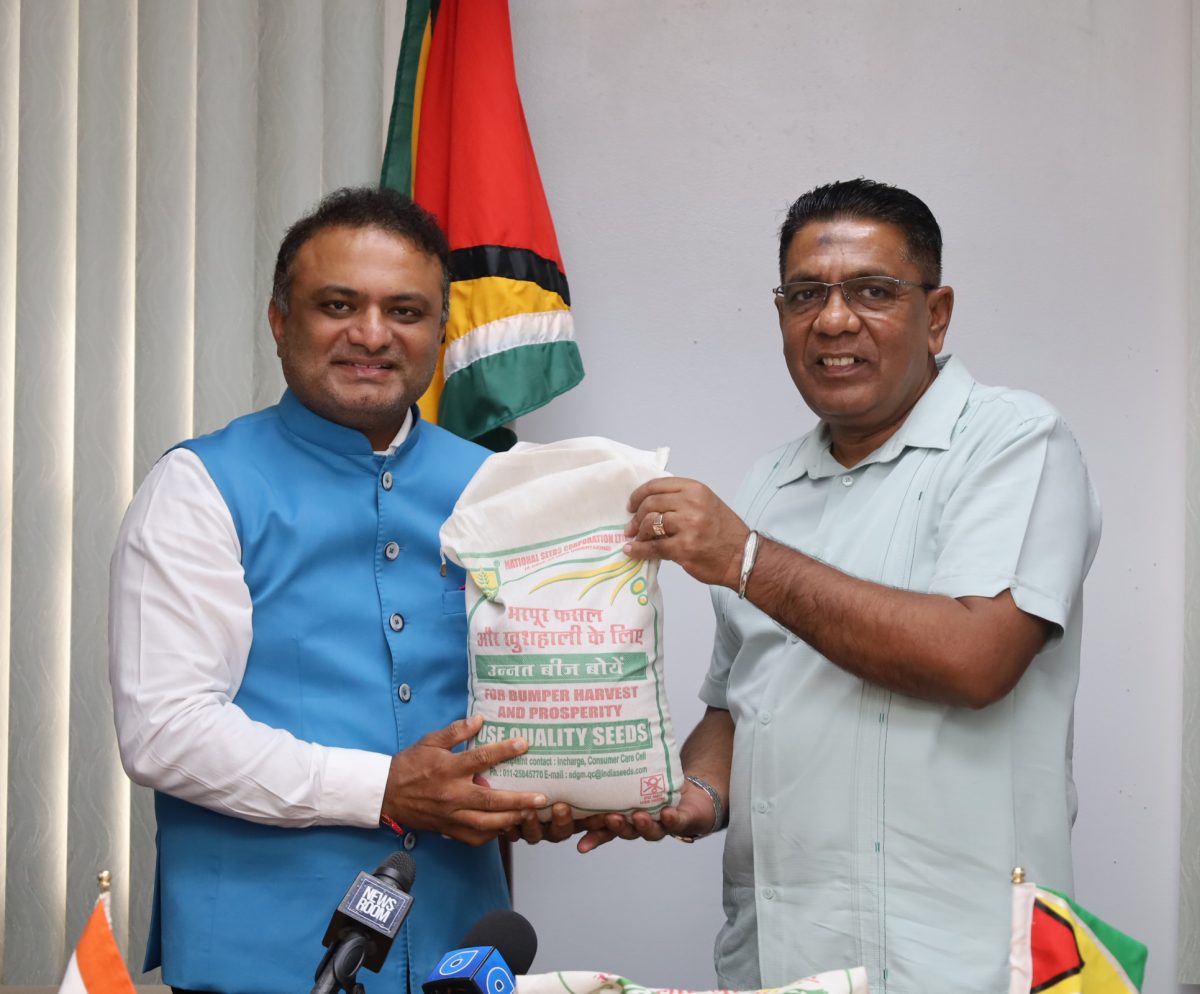The Government of Guyana through the Ministry of Agriculture (MoA) will soon commence trials for millet cultivation after receiving a quantity of seeds from the Indian Government, a MoA release yesterday stated
Indian High Commissioner to Guyana, Dr K J Srinivasa, on Friday handed over the seeds to Agriculture Minister, Zulfikar Mustapha, during a ceremony at the ministry’s offices.
In his remarks, Mustapha expressed confidence in the success of the trial, noting that Guyana has the land, necessary climate, and inputs, to support the commercial production of millet.
“This is a very significant event because it shows that we are moving closer to achieving our food and nutrition security goals. We know the nutritional value of millet and what it can do and how it can benefit the population. In Guyana, we have the land, the climate, and the inputs to facilitate successful trials and I believe we will soon move from the trial phase to commercial cultivation. While I was in India earlier this year, I had a bilateral meeting with the Minister with responsibility for agriculture and he committed to supplying the seeds for the trials. I’ve also been working closely with the Indian High Commissioner on this and other initiatives to develop Guyana’s agriculture sector,” he noted.
Mustapha explained that the cultivation will be done in phases and that initially, 50 acres will be cultivated.
The release disclosed that when he was in India last March, Mustapha participated in a round-table discussion with India’s Minister of Agriculture and Farmers Welfare, Narendra Singh Tomar, and discussed millet production in several countries including Guyana in an effort to increase food security and improve the overall health and wellbeing of the global population through healthy and nutritious food
Meanwhile, at the handing over, the Indian High Commissioner said that Guyana remains a close partner with India and that many training opportunities exist for Guyanese in India in a number of fields.
Earlier this year, during a virtual address at the two-day Global Millet Conference in New Delhi, India, President Irfaan Ali highlighted that India is the largest millet producer globally and is also assuming global leadership in advancing the objective of addressing one of the world’s most foremost challenges which is food security.
“These identified areas represent the profit zone in which similar crops like corn and soya are adaptive and are being produced on a large scale,” the president said, adding, “Together we can achieve sustainable development, eliminate hunger, adapt to climate change, and transform agri-food systems by exploring every viable opportunity.”
The Head of State indicated that some 200 acres of land will be made available exclusively for the cultivation and production of millets in regions Four, Nine, and Ten, in honour of the United Nations declaration of 2023 as the International Year of Millet (IYOM). And in May, MoA also signed a Memorandum of Understanding (MoU) with UPL Limited, an Indian-based company, making way for trials to commence for millet cultivation.
India in exchange will provide technology and technical support for enhancing the farm production and productivity of this wonder food.
In May, the Ministry of Agriculture also signed a Memorandum of Understanding with UPL Limited, an Indian-based company, making way for trials to commence for millet cultivation.
Millets are a group of cereal grains that belong to the Poaceae family, commonly known as the grass family. The grains are usually grounded into flour to make various foods. While it may look like a seed, the millet’s nutritional profile is similar to that of sorghum and other cereals.






